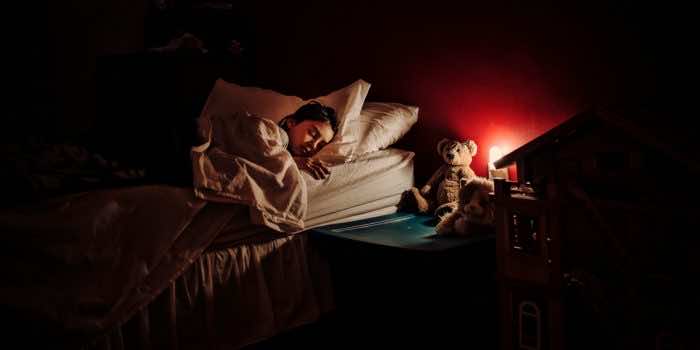According to Sleep Education, an estimated 50% to 85% of US adults report having occasional nightmares, with up to 5% of the US experiencing regular nightmares because of nightmare disorder.
A psychology student, Gemma Simpson has been experiencing disruptive nightmares that affect her sleep and day-to-day life for over a decade.
“Sleep is always worse straight after a nightmare,” she said. “They are always vivid, so I tend to marinate on them unintentionally over the next few days until the trauma fades a bit.”
“I had a dream once that my dad beat me with an aluminum baseball bat in an art gallery,” she said. “The art gallery bit was very specific and strange. … I’ve also had nightmares about sexual assault and violence.”
As a psychology student, Simpson is well familiar with Freud’s theory of dreams, wherein they represent unconscious desires and feelings that the brain needs to process.

According to sleep psychologist Dan Ford of Auckland’s Better Sleep Clinic, trying to interpret dreams once you’ve woken up can only be helpful if it makes you feel comforted.
Nightmares will only occur in REM sleep, the fourth stage of sleeping, where the mind is at its most active. In people who don’t experience the limb paralysis element of stage four, this is also when they might sleepwalk or act out their dreams.
They may sound similar but nightmares and night terrors are not interchangeable experiences.
Night terrors are specifically separate from nightmares and are associated with confusion, screaming, and other vocalizations.
“They’re both parasomnias, however, they happen in different phases of sleep,” said Ford. “So night terrors generally will happen in non-dream sleep, or non-REM sleep, and nightmares will happen predominantly in REM sleep.”

This means that night terrors usually occur earlier in the sleep cycle. Night terrors are predominantly experienced by children between the ages of 4 and 12 and are usually something that children simply grow out of.
Healthline suggests that if you’re susceptible to internalizing sensitive material, you may not be the best candidate to watch horror films because of the effect they may have on your sleep and mental health.
From a psychological perspective, horror movies and thrillers stimulate the production of adrenaline in a controlled environment, and they contribute to nightmares.
“My brain is like, ‘I know monsters and aliens (probably) aren’t real,’ so I can justify it, but if it’s people it’s just a little too realistic.”


